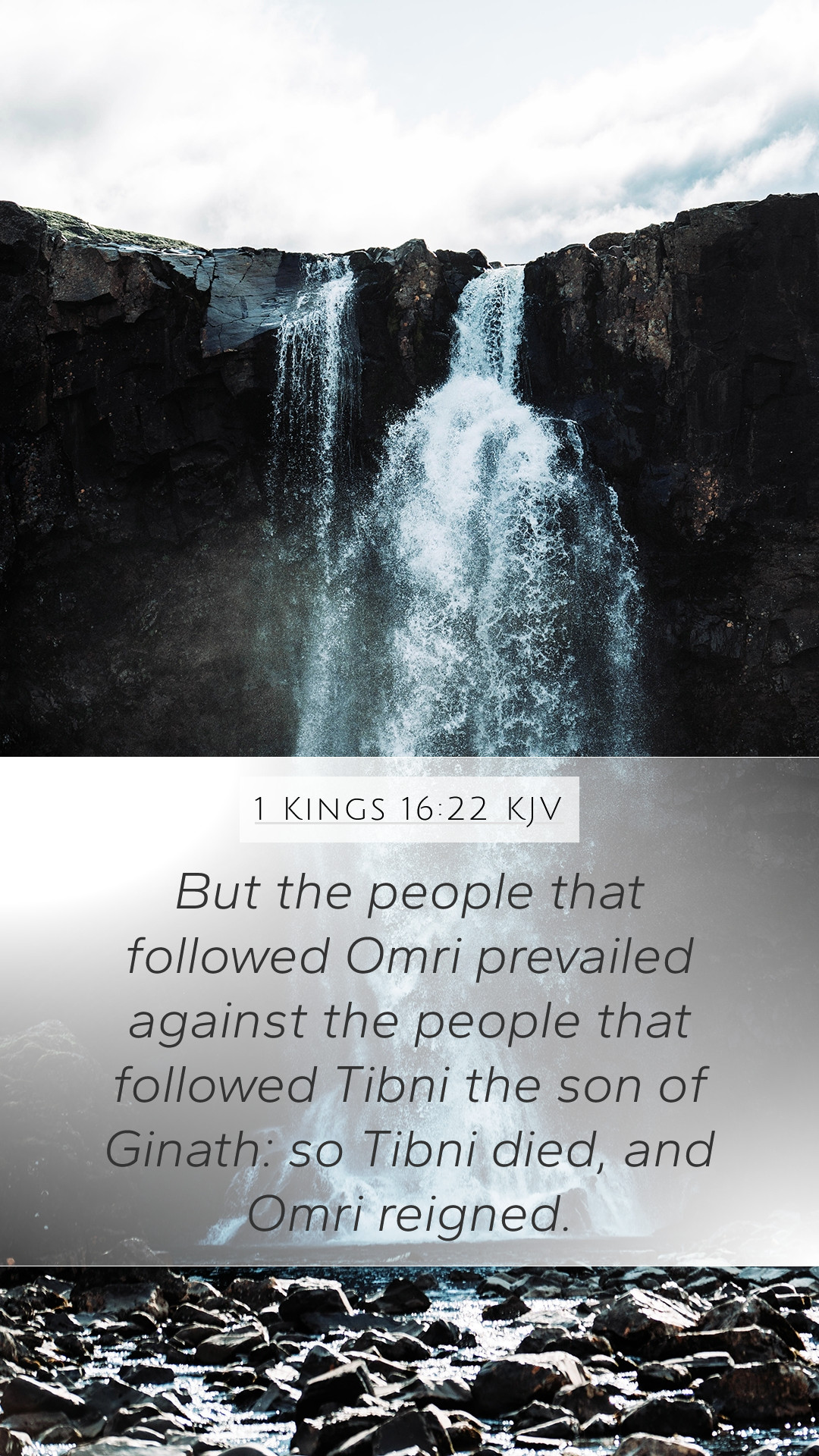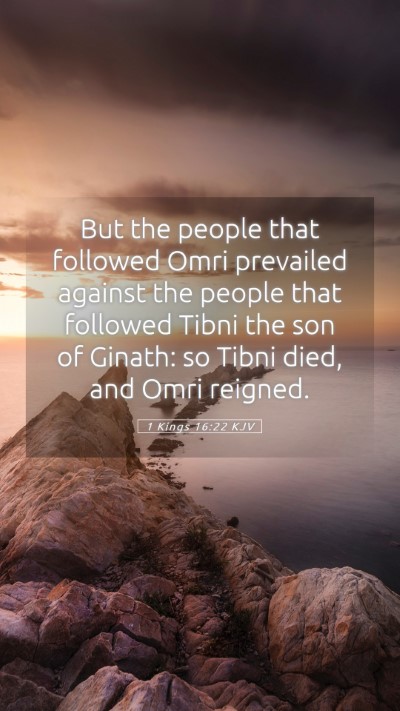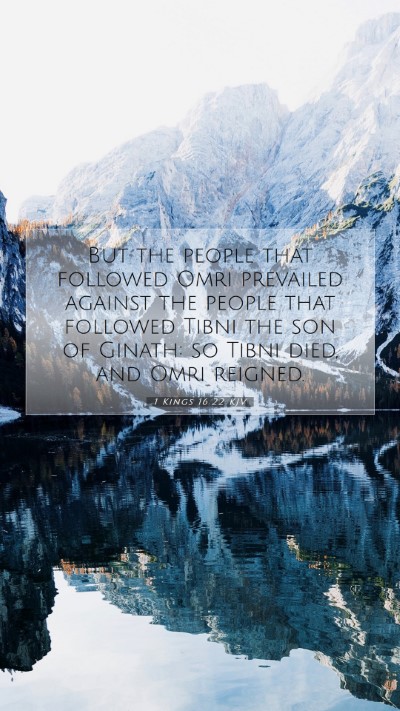1 Kings 16:22 states: "But the people that followed Omri were more than the people that followed Tibni the son of Ginath: so Tibni died, and Omri reigned." This verse marks a significant moment in the history of the northern kingdom of Israel during a period of political turmoil and civil strife, reflecting the broader themes of leadership, legitimacy, and the consequences of division.
Understanding this verse involves several layers of historical and theological analysis:
-
Political Context:
This period was marked by conflict between two factions vying for the throne of Israel. Omri, who ultimately prevailed, represents stability, while Tibni's failure highlights the fragility of power when factions divide.
-
Divine Sovereignty:
The eventual rule of Omri can be interpreted through the lenses of divine providence, demonstrating how God utilizes even the chaos of human decisions to fulfill His purposes for Israel.
-
Public Support:
The verse underscores the importance of public perception and support in securing a ruler's reign, noting how Omri's backing reflected a strategic advantage over his rival.
-
Legacy of Kings:
Omri's reign set the stage for future kings, and his actions would have long-lasting implications for Israel, particularly regarding his eventual son, Ahab, and the religious consequences that followed.
Insights from Public Domain Commentaries
Matthew Henry's Commentary:
Henry emphasizes the significance of the people's choice in leadership and how it reflects their moral and spiritual state. He believes that Omri's triumph signifies the people's preference for a tangible and powerful leader, despite the impending doom that his reign would usher in for the nation due to his idolatrous practices.
Albert Barnes' Commentary:
Barnes provides additional insights into the implications of this verse by discussing the geographical and political landscape during Omri's reign. He highlights that Omri fortified Samaria and established it as the capital, which was a crucial move for national unity and defense, yet also foreshadowed the idolatrous practices that would seep into the national identity.
Adam Clarke's Commentary:
Clarke delves into the historical circumstances surrounding the conflict between Omri and Tibni. He notes how Tibni’s death and subsequent consolidation of power by Omri reflected the tumultuous nature of Israel's monarchy during this era and foreshadowed the challenges that the northern kingdom would face under its new leadership.
Significance of the Verse
This verse not only illustrates the shift in leadership but also acts as a precursor to later events involving Ahab and his notorious alliances, particularly with Jezebel, which would ultimately lead Israel into moral decline and idolatry. Thus, it is integral to understanding the broader narrative of the Books of Kings.
Related Bible Cross References
- 1 Kings 12:16 - Discusses the division of Israel and the initial rebellion against Rehoboam.
- 1 Kings 16:23-28 - Outlines further details of Omri’s reign and his deeds.
- 2 Kings 3:1 - Highlights the lineage of Omri and its significance in the context of Israel's kingship.
Application for Bible Study
For those seeking bible verse interpretations and meaning of Bible verses, 1 Kings 16:22 provides ample opportunity for discussion in bible study groups and serves as a rich example of how to interpret leadership dynamics and divine sovereignty in historical context. This verse encourages us to consider the significance of our choices in leadership and the broader implications of political decisions.
As you engage in online Bible study or utilize various bible study tools, reflect on how this passage illustrates the tension between human authority and divine control, enhancing your bible study insights.
Conclusion
In summary, 1 Kings 16:22 is a powerful verse that encapsulates essential themes of political struggle and divine providence. Analyzing it with resources like Bible study guides, Bible study lessons, and Bible study plans can lead to profound understanding of both the text and its implications for personal and communal faith.


